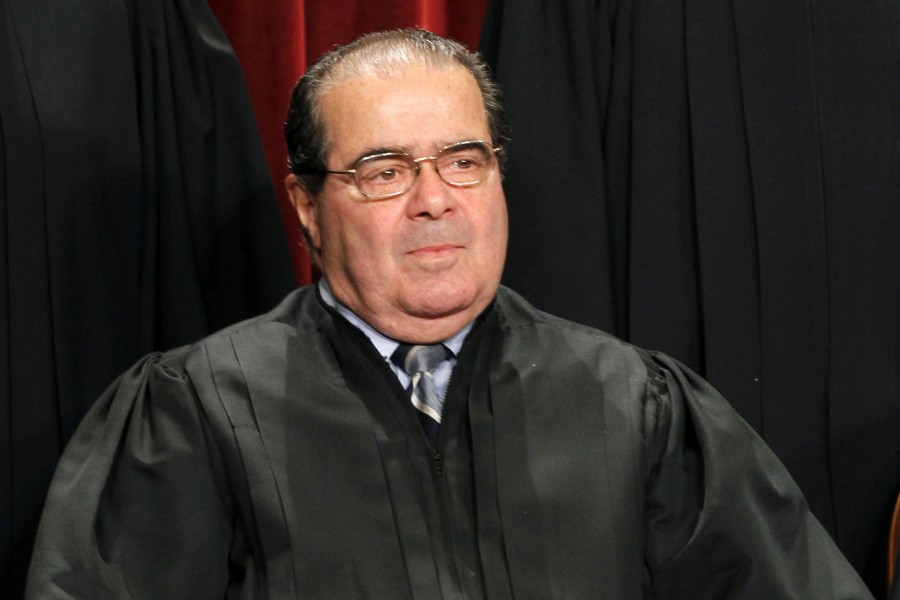The death of Justice Scalia: what it means now and in the future
February 29, 2016
On February 13, 2016, Supreme Court Justice Antonin Scalia was found dead in Shafter Texas at the age of 79. Scalia’s death was due to natural causes.
Scalia was nominated to the Supreme Court in 1986 and was unanimously approved in the same year. A strict conservative Justice, Scalia was a legal giant, and a highly influential member of the court. He wrote decisions at a historical rate, according to FiveThirtyEight, he wrote 26% of all decisions for the court and 45% of dissents when in the minority.

Scalia’s death, while tragic, sets the stage for the possibility of a major shift in the Supreme Court. According to the New York Times, 85 cases have been decided by a 5-4 vote since 2005, with Scalia voting on the conservative side on most of those occasions. His death leaves the eight remaining justices balanced at four Republicans and four Democrats. The next justice will shift the balance of the court for the next several decades. On this year’s docket, there are crucial cases on abortion, affirmative action, contraception, jury selection, voting rights, and several more with the potential to change life in America.
The next Justice appointed would shift American law for not only this year, but for several decades. The appointment of a justice is guaranteed to change the course of American history and is of paramount importance for the younger generations.
The question remains, who will nominate Scalia’s replacement? The constitution clearly states that current President Barack Obama is to nominate the next justice.
“[The President] shall have Power, by and with the Advice and Consent of the Senate, to make Treaties, provided two thirds of the Senators present concur; and he shall nominate, and by and with the Advice and Consent of the Senate, shall appoint Ambassadors, other public Ministers and Consuls, Judges of the Supreme Court, and all other Officers of the United States, whose Appointments are not herein otherwise provided for, and which shall be established by Law: but the Congress may by Law vest the Appointment of such inferior Officers, as they think proper, in the President alone, in the Courts of Law, or in the Heads of Departments.”
However, an argument has began in the Senate over whether a nomination should be made before the upcoming election. Republican Senators and Presidential Candidates agree that the President should not nominate a justice.
“The American people should have a voice in the selection of their next Supreme Court Justice,” Senate Majority Leader Mitch McConnell said. “Therefore, this vacancy should not be filled until we have a new President.”
Republican frontrunner Donald J. Trump has acknowledged President Obama’s right to nominate a justice, but supported Republicans blocking any form of legislation.
Mashable News on Twitter: “Trump on Scalia replacement: “Delay, delay, delay” pic.twitter.com/QYL34Uluu9 / Twitter”
Trump on Scalia replacement: “Delay, delay, delay” pic.twitter.com/QYL34Uluu9
Senate Democrats have a starkly different view, and believe the President should nominate and the senate should confirm a justice quickly.
“The President can and should send the Senate a nominee right away,” Senate Minority Leader Harry Reid said. “With so many important issues pending before the Supreme Court, the Senate has a responsibility to fill vacancies as soon as possible.”
While the court only has eight justices, a four-four tie will confirm the lower court’s ruling while not setting a precedent.
With Republicans holding control in the Senate, it is unlikely that a nomination will be confirmed before the next election. With the next president controlling the next justice nomination, the 2016 election is more important than before. The next president will control the balance of the Supreme Court. During the next president’s term, FiveThirtyEight predicts that four justices will need replacing including Justice Scalia.

The Supreme court’s balance is highly important to younger generations as they will have to live with the rulings of the next Justices for several decades. LFA senior Grant Schmarak noted the importance of the next justice.
“The new justice impacts my generation greatly. They will be on the bench for probably the next 30 years and will have major decisions to make,” Schmarak said. “Decisions like abortion and legalization of marijuana, they will be very influential in how our country changes in the future.”
The next justice will be faced with modern age cases. Junior Austin Clamage hopes the next justice is up to date on current events and is able to connect with younger generations.
“The next justice should be impartial and up to date with the newer generation,” Clamage said. “Even though they need to follow the constitution, they must have a modern understanding of issues prevalent to America today.”
Regardless of who nominates the next justice, they will have an immensely important decision on their hands. A decision which will effect the all generations for the next several decades.
















